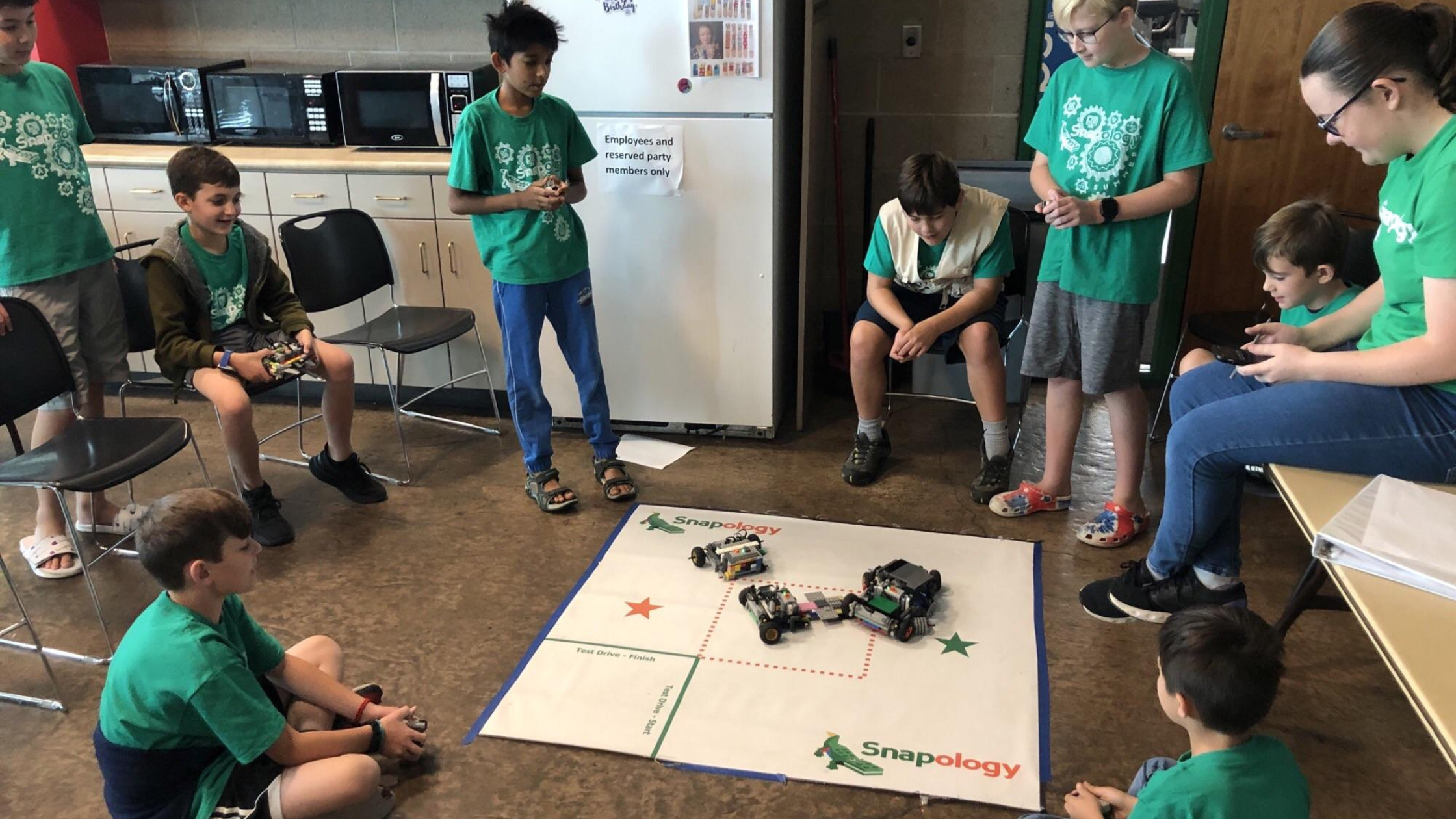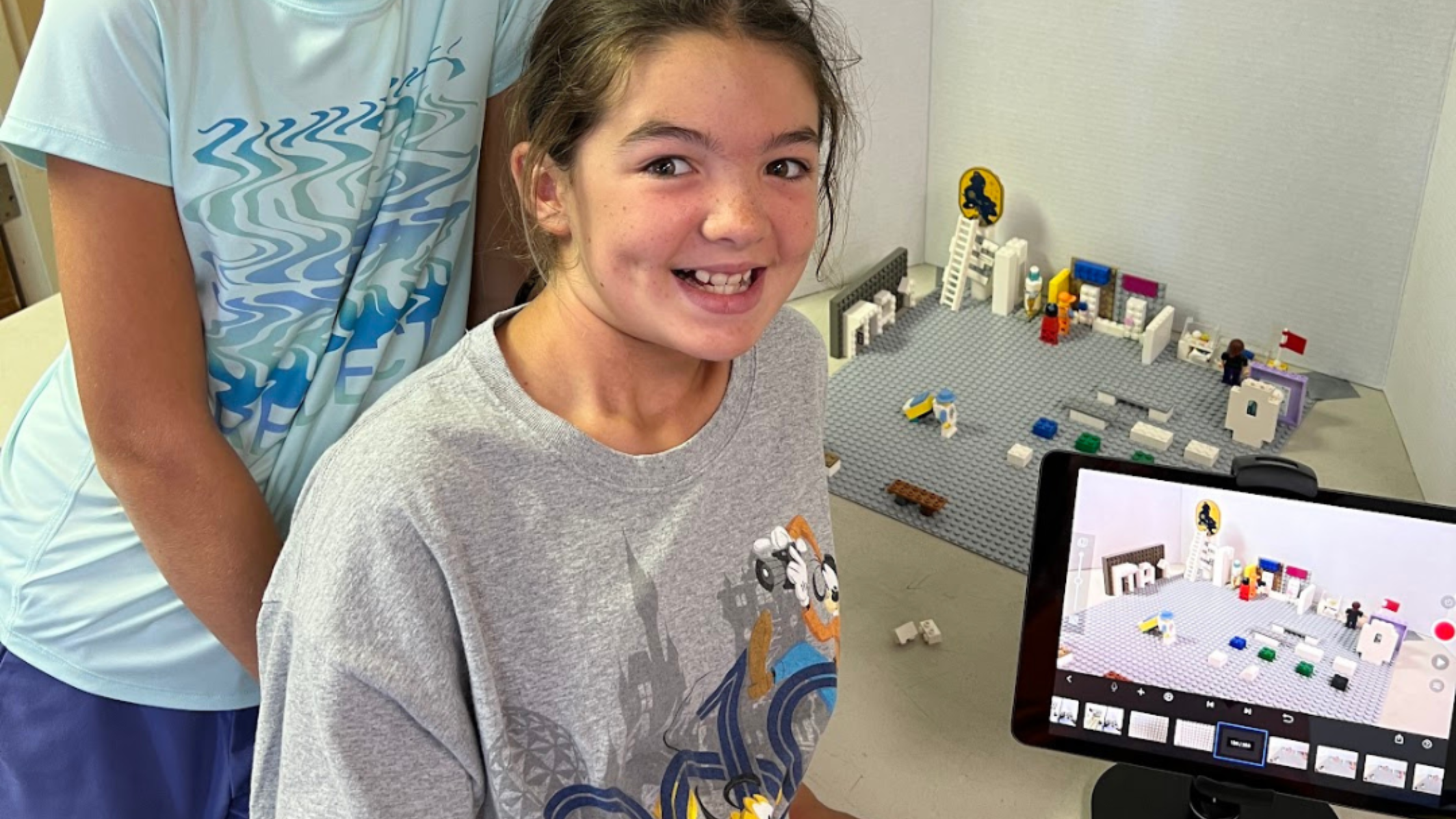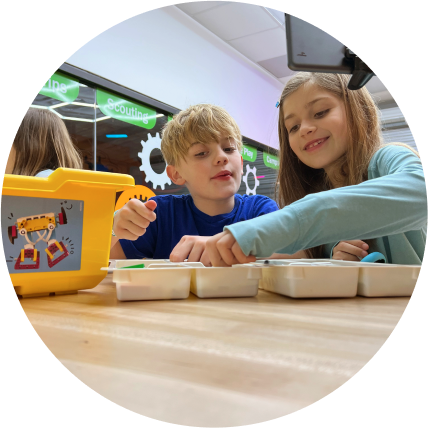Summer camps are often thought of as a time for kids to have fun and make new friends. But did you know that summer camps are also an opportunity for hands-on learning that can spark curiosity and creativity in children?
The science behind summer camps is clear: hands-on learning is an effective way to engage children and help them retain information. This is because hands-on learning allows children to experience concepts in a tangible way, rather than just reading or hearing about them. When children can see, touch, and manipulate objects, they are more likely to understand and remember what they are learning.
Summer camps provide a unique opportunity for hands-on learning because they allow children to explore new topics and activities outside of the traditional classroom setting. For example, a science/stem-focused summer camp might allow children to conduct experiments, observe nature, or build simple machines. A music-focused summer camp might allow children to learn a new instrument or compose their own songs. And an art-focused summer camp might allow children to experiment with different mediums and techniques.

But what exactly happens in the brain when children engage in hands-on learning at summer camp? According to neuroscientists, when children are actively engaged in a task, their brains release dopamine, a neurotransmitter that is associated with pleasure and reward. This means that when children are learning through hands-on activities, they are not only more engaged and interested in the material, but they are also more likely to remember it in the long term.
In addition to fostering curiosity and creativity, summer camps can also help children develop important life skills, such as problem-solving, teamwork, and communication. When children work together on hands-on projects, they learn how to collaborate and communicate effectively. When they encounter obstacles, they learn how to think critically and problem-solve.
In summary, the science behind summer camps shows that hands-on learning is a powerful way to engage children and spark their curiosity and creativity. When children are actively involved in their learning, they are more likely to remember what they have learned and to develop important life skills. So, the next time you’re looking for a summer camp for your child, consider one that offers hands-on learning opportunities you might just be giving them a lifelong love of learning!
Consider Snapology this year for fun and engaging, hands-on activities! We offer programs using LEGO® bricks to engineer cars, program robots or bust out a world of creativity in our themed programs like animation studio, Minecraft, Pokemon, Star Wars and so much more!


